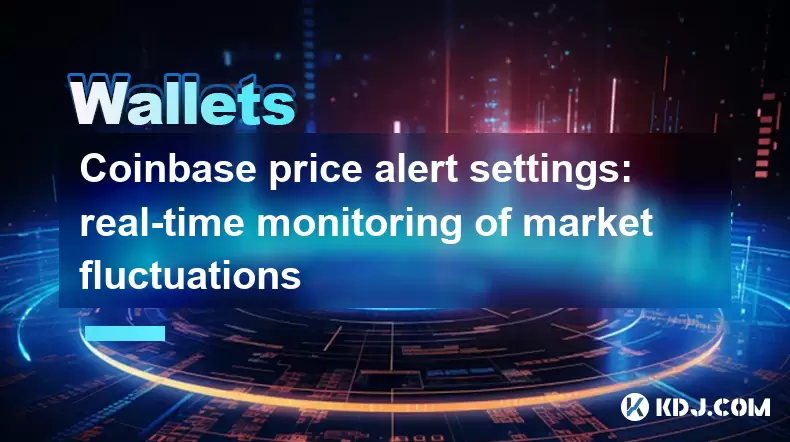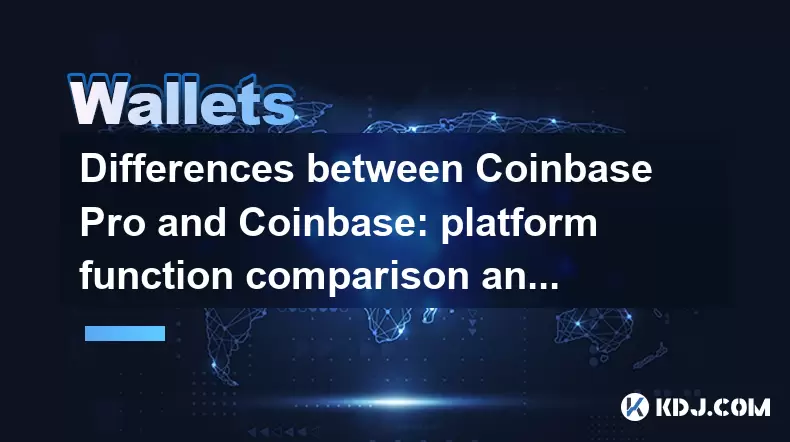-
 Bitcoin
Bitcoin $108,165.4587
0.78% -
 Ethereum
Ethereum $2,456.3517
1.15% -
 Tether USDt
Tether USDt $1.0003
0.00% -
 XRP
XRP $2.1934
0.05% -
 BNB
BNB $650.0935
0.52% -
 Solana
Solana $151.3905
2.69% -
 USDC
USDC $0.9998
0.00% -
 TRON
TRON $0.2751
-0.32% -
 Dogecoin
Dogecoin $0.1640
0.87% -
 Cardano
Cardano $0.5631
0.57% -
 Hyperliquid
Hyperliquid $38.7115
4.69% -
 Bitcoin Cash
Bitcoin Cash $493.1868
-0.39% -
 Sui
Sui $2.8217
3.61% -
 Chainlink
Chainlink $13.3994
2.08% -
 UNUS SED LEO
UNUS SED LEO $9.1632
0.94% -
 Avalanche
Avalanche $18.0318
1.97% -
 Stellar
Stellar $0.2388
0.35% -
 Toncoin
Toncoin $2.8763
1.41% -
 Shiba Inu
Shiba Inu $0.0...01160
1.59% -
 Litecoin
Litecoin $86.6393
1.29% -
 Hedera
Hedera $0.1485
0.16% -
 Monero
Monero $315.7948
1.56% -
 Polkadot
Polkadot $3.4240
1.88% -
 Bitget Token
Bitget Token $4.6314
-0.44% -
 Dai
Dai $0.9998
-0.01% -
 Ethena USDe
Ethena USDe $1.0002
-0.01% -
 Uniswap
Uniswap $7.2110
2.59% -
 Aave
Aave $270.6087
6.07% -
 Pi
Pi $0.5350
0.52% -
 Pepe
Pepe $0.0...09545
1.26%
Digital asset storage: hot wallet vs cold wallet security discussion
Hot wallets are convenient for frequent crypto transactions but vulnerable to hacking, while cold wallets offer superior security for long-term storage, requiring physical connection for use.
Apr 02, 2025 at 08:43 pm

Digital asset storage is a critical aspect of managing cryptocurrencies, and understanding the differences between hot wallets and cold wallets is essential for ensuring the security of your investments. Hot wallets are connected to the internet, making them convenient for frequent transactions but also more vulnerable to hacking. On the other hand, cold wallets are offline, offering a higher level of security but less convenience for everyday use. This article will delve into the security aspects of both types of wallets, helping you make an informed decision on which is best for your needs.
What is a Hot Wallet?
A hot wallet is a digital wallet that is connected to the internet. This connectivity allows for easy and quick transactions, making it ideal for users who frequently buy, sell, or trade cryptocurrencies. Hot wallets can be accessed through various devices such as smartphones, tablets, and computers. Common examples include software wallets like MetaMask and mobile wallets like Trust Wallet. While hot wallets offer convenience, they are more susceptible to cyber attacks due to their online nature.
Security Risks of Hot Wallets
Hot wallets are prone to several security risks due to their internet connectivity. One of the primary concerns is hacking, where malicious actors can gain access to your wallet through phishing attacks, malware, or exploiting vulnerabilities in the wallet software. Another risk is the potential for exchange hacks, where the platform hosting your hot wallet is compromised. Additionally, hot wallets can be vulnerable to man-in-the-middle attacks, where an attacker intercepts your communication with the wallet service. These risks highlight the importance of taking extra precautions when using hot wallets.
Best Practices for Securing Hot Wallets
To mitigate the risks associated with hot wallets, it's crucial to follow best practices for security. Here are some steps you can take:
- Use strong, unique passwords for your wallet and enable two-factor authentication (2FA) whenever possible.
- Keep your wallet software and devices up to date with the latest security patches.
- Be cautious of phishing attempts and never share your private keys or seed phrases with anyone.
- Use reputable wallet providers and avoid storing large amounts of cryptocurrency in hot wallets.
- Consider using a hardware security key for an additional layer of protection.
By adhering to these practices, you can enhance the security of your hot wallet and reduce the likelihood of falling victim to cyber attacks.
What is a Cold Wallet?
A cold wallet, also known as a hardware wallet or offline wallet, is a physical device that stores your cryptocurrency offline. This offline nature significantly reduces the risk of hacking and unauthorized access. Cold wallets are typically small, portable devices that can be connected to a computer or smartphone when you need to make a transaction. Popular examples include Ledger and Trezor. While cold wallets offer superior security, they are less convenient for frequent transactions due to the need to physically connect the device.
Security Benefits of Cold Wallets
Cold wallets provide several security benefits due to their offline nature. Since they are not connected to the internet, they are immune to online hacking attempts, phishing attacks, and malware. Your private keys are stored securely within the device, and transactions can only be initiated when the wallet is physically connected to a device. This adds an extra layer of protection, as an attacker would need physical access to the wallet to compromise it. Additionally, many cold wallets come with features like PIN codes and recovery phrases, further enhancing their security.
Best Practices for Securing Cold Wallets
While cold wallets are inherently more secure, it's still important to follow best practices to ensure their safety. Here are some steps you can take:
- Store your cold wallet in a secure location, such as a safe or a secure drawer.
- Use a strong PIN code and never share it with anyone.
- Keep your recovery phrase in a safe, separate location from your wallet.
- Regularly update the firmware of your cold wallet to ensure you have the latest security features.
- Be cautious when connecting your cold wallet to a computer or smartphone, and ensure the device is free from malware.
By following these practices, you can maximize the security of your cold wallet and protect your digital assets from potential threats.
Comparing Hot Wallets and Cold Wallets
When deciding between a hot wallet and a cold wallet, it's essential to consider your specific needs and the level of security you require. Hot wallets are ideal for users who need quick and easy access to their cryptocurrencies for frequent transactions. They are convenient but come with higher security risks. Cold wallets, on the other hand, are perfect for long-term storage and for users who prioritize security over convenience. They offer robust protection against online threats but require more effort to use for transactions.
Factors to Consider When Choosing a Wallet
Several factors should be considered when choosing between a hot wallet and a cold wallet. Here are some key considerations:
- Frequency of Transactions: If you frequently buy, sell, or trade cryptocurrencies, a hot wallet may be more suitable due to its ease of use. For less frequent transactions, a cold wallet's security benefits may outweigh the inconvenience.
- Amount of Cryptocurrency: If you hold a large amount of cryptocurrency, it's advisable to use a cold wallet for the majority of your assets, with a small portion kept in a hot wallet for daily use.
- Security Needs: If security is your top priority, a cold wallet is the better choice. If you're willing to take on more risk for the sake of convenience, a hot wallet might be more appropriate.
- Cost: Cold wallets typically come with a higher upfront cost due to the hardware, while hot wallets are often free or low-cost. Consider your budget when making a decision.
By weighing these factors, you can make an informed choice that aligns with your needs and risk tolerance.
Real-World Examples of Hot and Cold Wallet Security
To illustrate the security differences between hot and cold wallets, let's look at some real-world examples. In 2014, the hot wallet of the Mt. Gox exchange was hacked, resulting in the loss of approximately 850,000 bitcoins. This incident highlighted the vulnerabilities of hot wallets and the importance of robust security measures. On the other hand, cold wallets have proven to be more resilient. For instance, the Ledger hardware wallet has been widely praised for its security features, with no reported breaches of the device itself. These examples underscore the importance of choosing the right type of wallet based on your security needs.
The Role of Multi-Signature Wallets
Multi-signature wallets, or multisig wallets, offer an additional layer of security that can be used with both hot and cold wallets. A multisig wallet requires multiple private keys to authorize a transaction, making it more difficult for a single compromised key to lead to unauthorized access. This can be particularly useful for businesses or groups that need to manage cryptocurrency collaboratively. While multisig wallets add complexity, they can significantly enhance the security of your digital assets, whether you're using a hot wallet for daily transactions or a cold wallet for long-term storage.
The Future of Digital Asset Storage
As the cryptocurrency industry continues to evolve, so too will the methods for storing digital assets. Innovations in wallet technology, such as the development of more user-friendly cold wallets and enhanced security features for hot wallets, are likely to emerge. Additionally, the integration of biometric authentication and advanced encryption techniques could further improve the security of both types of wallets. Staying informed about these advancements will be crucial for anyone looking to safeguard their cryptocurrency investments in the future.
Common Questions About Hot Wallets and Cold Wallets
Q: What is the main difference between a hot wallet and a cold wallet?
A: The main difference is their connectivity to the internet. Hot wallets are connected to the internet, making them convenient for frequent transactions but more vulnerable to hacking. Cold wallets are offline, offering higher security but less convenience for everyday use.
Q: Can I use both a hot wallet and a cold wallet?
A: Yes, many users employ a strategy known as "cold storage" for the majority of their assets, keeping only a small amount in a hot wallet for daily transactions. This approach balances convenience and security.
Q: Are cold wallets completely secure?
A: While cold wallets are highly secure due to their offline nature, they are not completely immune to risks. Physical theft, loss, or damage to the device can still pose threats. It's important to store your cold wallet securely and keep your recovery phrase safe.
Q: How do I choose the right wallet for my needs?
A: Consider factors such as the frequency of your transactions, the amount of cryptocurrency you hold, your security needs, and your budget. If you prioritize security and hold large amounts of cryptocurrency, a cold wallet may be best. For frequent transactions and smaller amounts, a hot wallet might be more suitable.
Q: What should I do if my hot wallet is compromised?
A: If you suspect your hot wallet has been compromised, immediately transfer your funds to a new, secure wallet. Change all related passwords and enable two-factor authentication if you haven't already. It's also wise to report the incident to the wallet provider and consider using a cold wallet for future storage.
Q: Can I recover my funds if I lose my cold wallet?
A: Yes, if you have your recovery phrase, you can recover your funds by setting up your cold wallet on a new device. It's crucial to keep your recovery phrase in a safe, separate location from your wallet to ensure you can access your funds if the device is lost or damaged.
Q: Are there any alternatives to hot and cold wallets?
A: Yes, other options include paper wallets, which store your private keys on a physical piece of paper, and multi-signature wallets, which require multiple private keys to authorize transactions. Each has its own set of advantages and security considerations.
Disclaimer:info@kdj.com
The information provided is not trading advice. kdj.com does not assume any responsibility for any investments made based on the information provided in this article. Cryptocurrencies are highly volatile and it is highly recommended that you invest with caution after thorough research!
If you believe that the content used on this website infringes your copyright, please contact us immediately (info@kdj.com) and we will delete it promptly.
- Bitcoin: A Lifeline Against Authoritarian Regimes and a Strategic Asset?
- 2025-06-29 22:30:12
- Elementary, My Dear Collector: Sherlock Holmes 50p Coins on eBay!
- 2025-06-29 22:30:12
- New Coin Disappearing Fast: The Price Impact of Angry Pepe Fork
- 2025-06-29 22:35:12
- Tron vs. Dogecoin: A Cryptocurrency Showdown in 2025
- 2025-06-29 22:50:12
- Ethereum, DeFi, and Cryptocurrency: Navigating the Evolving Landscape
- 2025-06-29 23:07:14
- New Coins, Gaming, and Shiba Inu: What's Hot in the Crypto Space?
- 2025-06-29 23:11:47
Related knowledge

Coinbase price alert settings: real-time monitoring of market fluctuations
Jun 29,2025 at 07:00am
Setting Up Coinbase Price AlertsTo begin real-time monitoring of market fluctuations on Coinbase, users can utilize the built-in price alert feature. This function allows you to receive notifications when a cryptocurrency reaches a specific price point. To access this setting, open the Coinbase app or log in via the web platform. Navigate to the 'Prices...

How to stake cryptocurrencies on Coinbase? Benefits and risks
Jun 27,2025 at 06:36pm
Understanding Cryptocurrency Staking on CoinbaseStaking cryptocurrencies involves locking up digital assets to support the operations of a blockchain network, typically in return for rewards. Coinbase, one of the most popular cryptocurrency exchanges globally, offers staking services for several proof-of-stake (PoS) coins. Users can stake their holdings...

Differences between Coinbase Pro and Coinbase: platform function comparison and analysis
Jun 29,2025 at 08:21am
Overview of Coinbase and Coinbase ProWhen exploring the cryptocurrency trading landscape, users often encounter two platforms under the same parent company: Coinbase and Coinbase Pro. While both are operated by the same organization, they cater to different types of users and offer varying features. Coinbase is primarily designed for beginners and casua...

How to contact Coinbase customer service? Support channels and response times
Jun 28,2025 at 01:29pm
Contacting Coinbase Customer Service: Support Channels and Response TimesIf you're a user of Coinbase, reaching their customer service team may become necessary for various reasons, such as account verification issues, transaction disputes, or technical difficulties. Understanding the different support channels available and what to expect in terms of r...

Coinbase advanced trading function usage tutorial: limit orders and market orders
Jun 28,2025 at 09:07pm
Understanding the Difference Between Limit Orders and Market OrdersWhen using Coinbase's advanced trading features, it is crucial to understand the fundamental difference between limit orders and market orders. A market order executes immediately at the best available price on the market. This type of order ensures that your trade goes through quickly, ...

How to sell Bitcoin on Coinbase? Detailed transaction steps
Jun 29,2025 at 04:22am
Setting Up Your Coinbase Account for TransactionsBefore you can sell Bitcoin on Coinbase, you must ensure your account is fully set up and verified. Coinbase requires identity verification to comply with regulatory standards. This process involves uploading a government-issued ID, confirming your address, and sometimes submitting a selfie holding the ID...

Coinbase price alert settings: real-time monitoring of market fluctuations
Jun 29,2025 at 07:00am
Setting Up Coinbase Price AlertsTo begin real-time monitoring of market fluctuations on Coinbase, users can utilize the built-in price alert feature. This function allows you to receive notifications when a cryptocurrency reaches a specific price point. To access this setting, open the Coinbase app or log in via the web platform. Navigate to the 'Prices...

How to stake cryptocurrencies on Coinbase? Benefits and risks
Jun 27,2025 at 06:36pm
Understanding Cryptocurrency Staking on CoinbaseStaking cryptocurrencies involves locking up digital assets to support the operations of a blockchain network, typically in return for rewards. Coinbase, one of the most popular cryptocurrency exchanges globally, offers staking services for several proof-of-stake (PoS) coins. Users can stake their holdings...

Differences between Coinbase Pro and Coinbase: platform function comparison and analysis
Jun 29,2025 at 08:21am
Overview of Coinbase and Coinbase ProWhen exploring the cryptocurrency trading landscape, users often encounter two platforms under the same parent company: Coinbase and Coinbase Pro. While both are operated by the same organization, they cater to different types of users and offer varying features. Coinbase is primarily designed for beginners and casua...

How to contact Coinbase customer service? Support channels and response times
Jun 28,2025 at 01:29pm
Contacting Coinbase Customer Service: Support Channels and Response TimesIf you're a user of Coinbase, reaching their customer service team may become necessary for various reasons, such as account verification issues, transaction disputes, or technical difficulties. Understanding the different support channels available and what to expect in terms of r...

Coinbase advanced trading function usage tutorial: limit orders and market orders
Jun 28,2025 at 09:07pm
Understanding the Difference Between Limit Orders and Market OrdersWhen using Coinbase's advanced trading features, it is crucial to understand the fundamental difference between limit orders and market orders. A market order executes immediately at the best available price on the market. This type of order ensures that your trade goes through quickly, ...

How to sell Bitcoin on Coinbase? Detailed transaction steps
Jun 29,2025 at 04:22am
Setting Up Your Coinbase Account for TransactionsBefore you can sell Bitcoin on Coinbase, you must ensure your account is fully set up and verified. Coinbase requires identity verification to comply with regulatory standards. This process involves uploading a government-issued ID, confirming your address, and sometimes submitting a selfie holding the ID...
See all articles

























































































